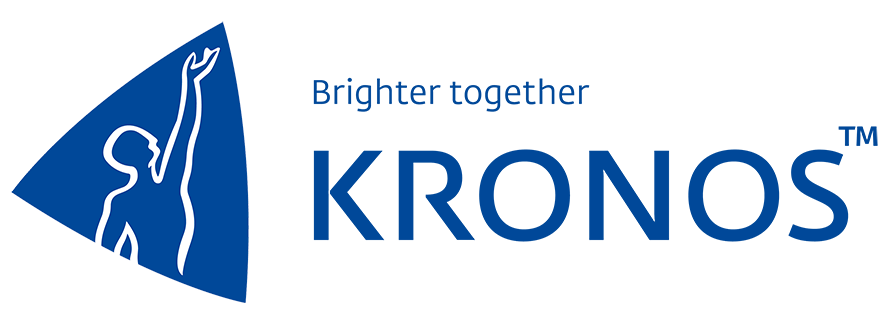Maintenance Operations Management Team Checklist
Manage maintenance activities across multiple sites and departments, ensuring efficient use of resources, compliance with regulations, and continuous improvement.
Team Information
Responsibilities
Communication Protocols
Risk Management
Quality Control
Incident Management
Training and Development
Performance Metrics
Review and Approval
Team Information
Gather team contact information including names, job titles, departments, and email addresses. Ensure all necessary personnel are included to facilitate efficient communication and collaboration within the project or initiative. This step helps establish a clear understanding of who will be participating in discussions, meetings, and decision-making processes. Review existing organizational charts, team directories, or company databases to gather this information. Verify the accuracy and completeness of the data, making any necessary updates or corrections. This process facilitates effective team management, ensures all stakeholders are informed, and sets the stage for successful project execution.
FAQ
How can I integrate this Checklist into my business?
You have 2 options:
1. Download the Checklist as PDF for Free and share it with your team for completion.
2. Use the Checklist directly within the Mobile2b Platform to optimize your business processes.
How many ready-to-use Checklist do you offer?
We have a collection of over 5,000 ready-to-use fully customizable Checklists, available with a single click.
What is the cost of using this Checklist on your platform?
Pricing is based on how often you use the Checklist each month.
For detailed information, please visit our pricing page.
Responsibilities
The Responsibilities process step involves defining and assigning tasks to specific individuals or teams. This step is crucial in ensuring that all necessary actions are taken to achieve project goals. The process begins with identifying key stakeholders who will be responsible for completing tasks. A clear and concise task list is then created, outlining expectations, deadlines, and any required resources. Tasks may include activities such as research, data analysis, or communication. Each task is assigned to a specific individual or team member, taking into account their expertise and workload. The responsibilities are clearly documented in a centralized system for easy reference and tracking. This process ensures that everyone understands their role and contributions towards the project's success.
Communication Protocols
Define and document all communication protocols to be used in the system, including data formats, transmission methods, and error handling procedures. Identify the protocols required for interactions between internal systems, external partners, and end-users. This includes specifications for APIs, messaging queues, and other communication mechanisms. Ensure that these protocols are aligned with industry standards and regulatory requirements where applicable. Develop a comprehensive protocol document outlining all details, including security considerations, data encryption methods, and authentication procedures. Collaborate with relevant stakeholders to validate and refine the documented protocols, ensuring they meet business needs and technical feasibility. Establish clear guidelines for implementing and maintaining these communication protocols throughout the system's lifecycle.
Risk Management
This step involves identifying, assessing, and prioritizing potential risks that could impact the project's objectives, timeline, budget, or quality. The Risk Management process aims to minimize or mitigate these risks by developing strategies and plans to address them. This includes brainstorming and documenting risk scenarios, evaluating their likelihood and impact, categorizing them based on severity, and creating an action plan to mitigate or avoid them. The process also involves continuously monitoring the project's environment for new risks that may emerge and updating the risk management plan accordingly. Effective risk management helps ensure that potential problems are anticipated and addressed before they become major issues, ultimately contributing to a more successful and efficient project outcome.
Quality Control
Quality Control is a critical process step that ensures the final product meets the established standards of quality. This involves inspecting and testing the finished goods to identify any defects or deviations from specifications. Quality Control personnel verify that all products conform to the design, material, and performance requirements. Any non-conforming products are identified, documented, and either corrected or removed from production. This step also includes sampling and testing to ensure compliance with regulatory requirements. The goal of Quality Control is to prevent defective products from reaching customers, thereby maintaining customer satisfaction, reputation, and loyalty. By implementing effective Quality Control procedures, manufacturers can improve product quality, reduce waste, and minimize the risk of recalls or legal issues.
Incident Management
The Incident Management process step is responsible for identifying, documenting, and resolving incidents in a timely and effective manner. This involves receiving reports of incidents from various sources, assessing their impact and priority, and assigning an incident owner to manage and resolve the issue. The incident owner will work with stakeholders to identify the root cause of the problem, implement corrective actions, and conduct post-incident reviews to ensure that lessons are learned and improvements are made. This process also involves tracking and reporting on incidents, including metrics such as mean time to detect (MTTD), mean time to resolve (MTTR), and incident frequency and severity. Effective incident management is critical for minimizing downtime, reducing financial losses, and maintaining customer confidence in the organization's ability to deliver services.
Training and Development
The Training and Development process involves providing employees with the necessary skills and knowledge to perform their jobs effectively. This includes onboarding new hires, updating existing staff on company policies and procedures, and offering specialized training in areas such as customer service, leadership development, and technical skills. The goal is to enhance employee competence, productivity, and job satisfaction, ultimately contributing to business success. Training methods may include classroom instruction, online courses, workshops, mentoring programs, and coaching sessions. Evaluation of the effectiveness of training initiatives involves tracking metrics such as knowledge retention, skill application, and performance improvement, identifying areas for further development and implementing adjustments as needed.
Performance Metrics
In this step, Performance Metrics are identified and established to measure the success of the project. This involves defining key performance indicators (KPIs) that will provide a clear understanding of whether the project is meeting its objectives or not. The metrics should be specific, measurable, achievable, relevant, and time-bound (SMART), allowing for easy tracking and evaluation throughout the project lifecycle. A thorough analysis of the data collected through these metrics enables stakeholders to make informed decisions regarding resource allocation, priority setting, and quality control. By establishing a solid foundation of performance metrics, teams can ensure that they are working towards specific goals and objectives, ultimately contributing to the overall success of the project.
Review and Approval
This process step involves a thorough examination of the work product by designated stakeholders to verify that it meets the established requirements and standards. The Review and Approval phase is critical in ensuring that the output is accurate, complete, and suitable for its intended purpose. In this step, experts carefully evaluate the work product against a set of predetermined criteria, identifying any discrepancies or areas that require revision. Once satisfied with the outcome, they provide formal approval, signifying their endorsement of the finished product. This process fosters accountability and transparency while promoting high-quality deliverables. A systematic review and approval mechanism helps maintain consistency across similar tasks, facilitating smoother workflow management.
Trusted by over 10,000 users worldwide!
The Mobile2b Effect
Expense Reduction
 34%
34% Development Speed
 87%
87% Team Productivity
 48%
48% Generate your Checklist with the help of AI
Type the name of the Checklist you need and leave the rest to us.
Why Mobile2b?
Your true ally in the digital world with our advanced enterprise solutions. Ditch paperwork for digital workflows, available anytime, anywhere, on any device.
 Made in Germany
Made in GermanyEngineered in Germany, ensuring high-quality standards and robust performance.
 Fair Pricing Policy
Fair Pricing PolicyOnly pay for what you use. Get the best value for your enterprise without unnecessary costs.




























 Certified Security and Data Protection
Certified Security and Data Protection Active Support and Customer success
Active Support and Customer success Flexible and Fully customizable
Flexible and Fully customizable